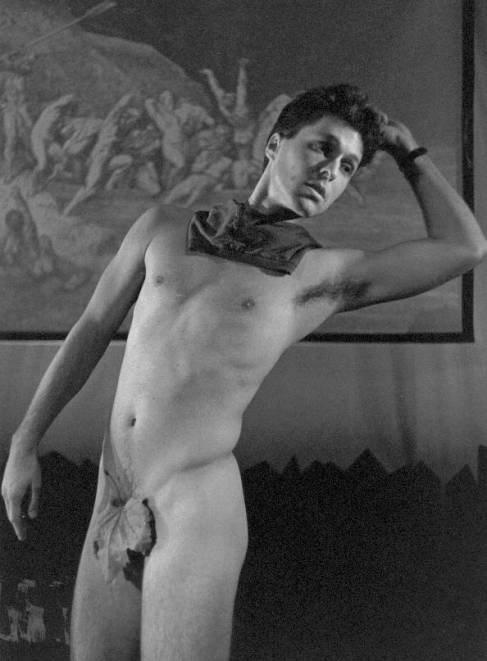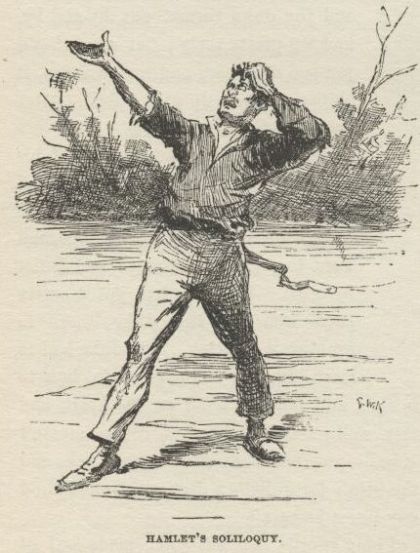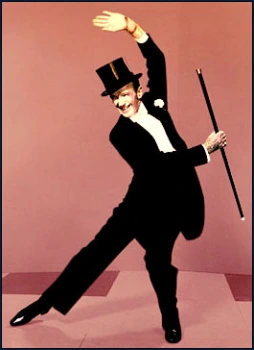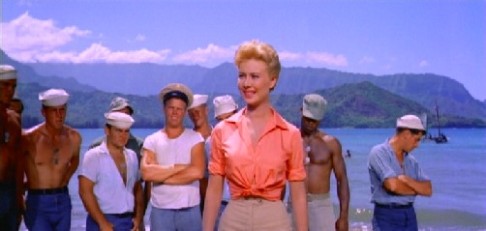So, this is an early attempt of mine, circa college, at a creative nonfiction monologue. It is probably painfully obvious that I was, at the time of writing, acquiring a BA in gender and women’s studies and theater. Other insight into 20 year-old-me would include my deep admiration for Tim Miller (queer performance artist extraordinaire who writes autobiographical work, one of the NEA 4, etc.)
and my growing distrust of The Vagina Monologues (celebrated cultural feminist nonfiction play by Eve Ensler, constructed of interviews with women discussing the links between their bodies and their identities as women…)
I suppose I am sharing this to raise some questions about form. Is this even creative nonfiction? What are the limitations of the monologue, as opposed to the essay? Are there any benefits, or strengths that are unique to this form- in terms of craft? empowerment (if that’s something we want to think about)? voice? etc?
A Hair Monologue
If my life were a performance, and as it turns out it is, or so Judith Butler keeps telling me, I know what the central plot question would be. Like Hamlet and his epic indecisiveness, I too have my own unanswerable query:
“To be hairy, or not to be hairy: That, is the question.”
This is my soliloquy. The crux of this dramatic conflict is, like most good theatre, quite simple: I am ashamed when I shave my legs, because I’m supposed to be a feminist, and I am ashamed when I don’t, because I am supposed to be feminine. This is that same shit that drove Ophelia mad- trying to sort out all the conflicting expectations of the world. Maybe I should just get me to a nunnery and call it a day, because like that infamous Danish prince and his Ophelia, I too have got an enormous cast of characters weighing in with their opinions, completely and inexplicably invested in the status of my body hair; my own personal Rosencrantz and Guildenstern trying to “glean what afflicts me,” if you will.
Take the character of my former employer, who carefully monitored the length of my armpit hair. Working as his nanny in the summertime, he was known to frequently pepper dialogue about the swimming pool schedule and bedtimes, with questions like:
“Did you boys know you have the cutest babysitter?” and “Do you have a boyfriend? Do you date a lot of older men?”
One day, sitting in the front seat of his car, the boys tucked safely in the back, he leaned over, and inches from my sunburned face demanded:
“Can I ask you a personal question?”
As if saying no had even stopped him. Everyone was silent, waiting.
“Why did you shave your armpits?”
If this had been a Rodgers and Hammerstein musical I would have slapped him across the face and done a tap dance on the hood of the car.
This was not that play. It was social realism meant to make the audience squirm. The truth was I didn’t know why I had shaved my armpits for the first time in months, but it sure as hell wasn‘t so this fucker would notice. Who knows? I mean, as Hamlet, I’m constantly deliberating; this shave was just an arbitrary plot point along the way to the denouement.
It was August. I mumbled something about sweat management, ashamed to be held accountable for my body in such a direct way. There was no escape. Not then, trapped in that car, with the boys’ embarrassed silence, and not ever. Every morning when I get dressed I know that if my hair, or lack of hair is visible, that I might at any moment be required to justify it to the world.
Not all characters are so direct in their confrontations.
For comic relief, I like to throw in frequent interludes of the generic “women on the street who visibly find my leg hair disgusting“ routine. It’s an audience favorite that integrates elements of mime and physical comedy. The scene always plays the same: I’m strutting down the street in my favorite dress, enjoying the sunshine, whistling a tune, feeling lovely. Two women walking the other direction pass me, only to perform a classic double-take, erupting into gasps and giggles:
“Oh. My. God. Did you SEE her LEGS?!”
Sometimes I laugh at them, and feel superior, maybe walk a little taller, playing the part of some hairy supermodel. But inevitably, I feel a twinge of panic in my gut, the inner monologue kicks in: “Is everyone looking? Are they right? Why am I putting myself through this?”
Did I mention that my play is avant-garde? Occasionally it features the odd Kafka-esque dream sequence. I’m on trial, standing before the judge. She is superhuman, enormous, I can not see her face. Leafing through my file, she coolly remarks:
“It says here that you secretly purchased a depilatory over the internet in 2005. Do you deny the charge?”
I spin around, frantically searching the teeming crowd of onlookers for my lawyer. Finding I am alone, I squeak:
“But I’m a Jew. Certainly the law makes allowances for–”
She cuts me off: “The law makes no allowances. It also says here that you have not shaved your armpits since August 2007. Your boss reported you. Do you deny the charge?”
The spotlight is making me dizzy. Confused and pleading, I try calling out “End Scene!” but the curtain remains drawn.
Someone from the audience cries “Off with her Hair!”
Another screams “No! Down with the man!”
“Silence!” bellows the judge, pounding her gavel. “I hereby sentence you to a low budget, off-off-Broadway production of your life as a Senecan tragedy. Take her away!”
The cast of The Vagina Monologues cheer: “Take her away! We don’t want her anymore!”
The chorus of attractive heterosexual sailors from South Pacific concur: “She can wash us men right out of her gross, hippy leg hair!”
This cues the strobe lights and smoke machine, and to the cacophony of booing, I disappear through the trap door, never to be seen again.
Pretty edgy huh?
Clearly, this lifelong performance doesn’t fit neatly into any one genre. As the main character I’m pretty boring, and my development doesn’t follow a graceful arc, it happens in fits and spurts, usually followed by regression. I am no closer to knowing whether to be hairy or not to be hairy than I was when I was sixteen. But, if there is one thing I have learned from a life in the theatre, it’s that sometimes to get closer to the truth, you need to put down the script and improvise. I only hope that in my version, Ophelia doesn’t have to go mad.




(and yes, that last line totally makes me cringe… sorry guys.)
Zoe, I love this so much. I don’t know that I have a good response to the questions you bring up about form at the moment, other than I think this monologue shows you doing some meta commentary on your own experiences that I think would be more difficult or at least not the same in a personal essay, but just as far as content, and your voice and humor in this piece, I can’t wait to see more of your writing in class!
I have at different times shaved and not-shaved, and when I worked in an office at UW where many of the women never wore makeup, I often felt like I would get these dirty looks in the bathroom if I dared to touch up my face like “You are not a serious person” or “You have betrayed us as feminists” etc, etc. It makes sense, though, right? We’re not judged enough by our appearance by the larger culture so we have to do that for each other as women…
Thank you, Chanel. I think that is really well put- why are we always trying to make each other feel like we’re not “serious people”?? (Women, men, ourselves…) Is there a “make-up monologue/essay” in your future? I would love to read it…
Hi Zoe! Thanks for sharing this – I love the form and the humor (as well as the serious questions at its heart). Is it weird that it reminded me a little of the fabulous courtroom scene in Dancer in the Dark? Anyway, I too wonder where people draw the lines between monologues/plays like the Laramie Project and nonfiction. I’d guess that some of it comes down to presentation; for example, here if you hadn’t included the intro and labeled it a monologue I would have thought of it as a short essay, especially with the presence of dialogue and images (not that you couldn’t have those with a monologue). If I had to take a stance, I guess I’d say that if you wanted it to be performed by others, you’d want to call it a monologue, but if you wanted it to be primarily read, you’d call it nonfiction. Let’s talk more about the Vagina Monologues sometime – it was all the rage among edgy feminists at my college, but I never particularly loved it 🙂
Yes- I would love to talk about this! Full disclosure: I was in the Vagina Monologues in college… and while I appreciate the sort of community-building aspects of V-Day, and while I acknowledge that all human experience is embodied, and colored by the body, there is something about focusing all this attention on the vagina as the source of all female experience that strikes me as sort of counter-productive or backward (?) If gender is socially constructed, and feminism is about inclusion, etc. etc. etc. What were some of your qualms?
Great questions (and monologue), Zoe. Like LeAnne, if you hadn’t told me the genre, I would have “heard” this as a classic personal essay, but perhaps more of the “column” type: such as Modern Love, or the online columns in Salon, that seem to be more conversational in nature.